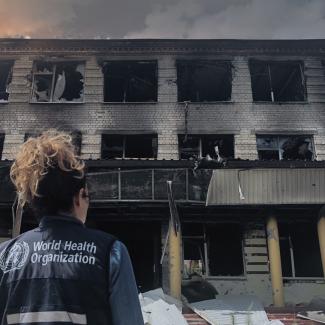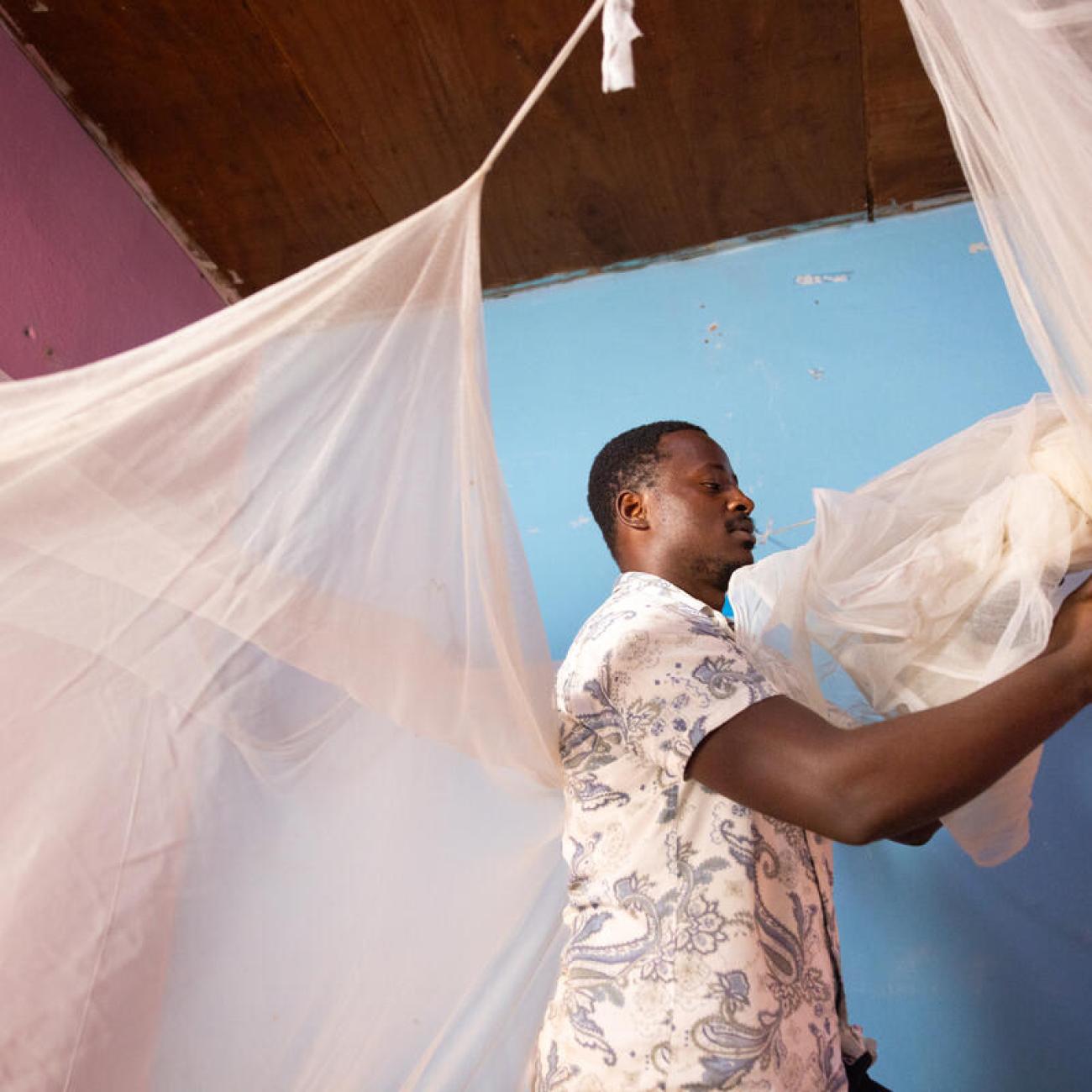African leaders gathered late last year in Lusaka, Zambia, for a historic International Conference on Public Health in Africa to reflect on the lessons learned in public health and to map the way forward for the continent. That pivotal moment recalled a discussion from the start of the COVID-19 pandemic with officials from government, health experts, and young community leaders from a West African country that was hard hit by Ebola in 2014.
It was an eye-opening conversation on the power that communities have to oversee and enable their own safety and security with the help of partners and stakeholders. It was a story of swift mobilization by government, health experts, and health institutions; collaboration, alignment, urgent action, and resolve in the most difficult of circumstances. A powerful reality of enabled rapid change in mindsets and behaviors, inspiring an agility and determination that helped contain a global crisis before it devastated the world.
Global experts helped contain the crisis but did not seek to fortify health systems
Stark lessons also emerged particularly for the world of development and including a story of exploitation. In short, global experts who came to Africa to help contain the crisis left with everything. They garnered knowledge working alongside local teams, but left no documentation, lessons, and equipment behind. They helped contain the crisis but did not seek to fortify health systems. That experience left a bitter taste in the communities. It was extractive, and the communities felt determined this could not happen again.
A Changing World
Today's evolving global landscape has given birth (or perhaps clearer visibility) to a host of complex global challenges—health, climate, economic, political, and social challenges—that are evolving at an unprecedented pace and require innovative and adaptable solutions. In the face of this urgency, global development stands at a crossroads between the traditional top-down model of philanthropy and more innovative, agile, and community-centred approaches.
At the height of the COVID-19 pandemic, the Mastercard Foundation and the Africa Centers for Disease Control and Prevention (CDC) co-launched the Saving Lives and Livelihoods partnership, a $1.5-billion initiative to buy COVID-19 vaccines, roll out doses across the continent, build a vaccine manufacturing workforce for Africa, and strengthen the Africa CDC to ensure long-term health and economic security for Africa.
The decision to partner with Africa CDC was logical. The body is set up by the African Union to oversee public health strengthening for the continent. Yet, from the onset some international actors questioned this approach: Why not place funds in existing global mechanisms and institutions? One argument was that there was less risk in funding global institutions. Yet, as a foundation that works primarily in Africa, it seemed clear the greatest opportunities to improve health systems are through unlocking the potential of local institutions best placed to drive change. It would have been riskier to maintain the status quo, particularly in the middle of a crisis.
Indeed, as the world breathed a sigh of relief at the development of lifesaving COVID-19 vaccines, Africa faced the stark reality that there would be no vaccine equity for the continent. African leaders had swiftly responded, setting up the Africa Vaccine and Acquisition Task Team (AVATT) to ensure the continent could secure vaccines.
An African Plan for Africa
In that moment of crisis, the Saving Lives and Livelihoods partnership was positioned to meet Africa's needs and objectives. The Africa CDC coordinated efforts with AVATT, worked with member states on country implementation plans, and coordinated with a raft of implementing partners for rollout. The complexity, scale, and speed of the partnership is unprecedented.
The decision to partner with Africa CDC was perceived as an audacious move, and it has paid off for the continent. To date, over 32 million of the target population are fully vaccinated against COVID-19, with doses administered in twenty-nine African countries. The partnership has trained, equipped, and deployed 37,000 health workers; created jobs for over 22,000 people; and established an African center of excellence for training in vaccine manufacturing in collaboration with the Institut Pasteur of Dakar. The initiative also led to the expansion of genomic testing capabilities from just two laboratories to thirty-two across the continent. In addition, Saving Lives and Livelihoods is invigorating public health systems by integrating routine immunizations, enabling countries and communities to address and prevent a range of infectious diseases.
To date, over 32 million of the target population are fully vaccinated against COVID-19, with doses administered in twenty-nine African countries
Saving Lives and Livelihoods offers a blueprint that places an emphasis on local empowerment, capacity building, adaptability, and community involvement. At the heart of the model is respectful action-oriented partnership; collaboration with local partners who have the knowledge and mandate to drive change, at scale. This approach allows for better-informed decisions, tailored solutions, and a stronger sense of ownership within communities.
It's not enough to address immediate crises. Development actors should also empower local organizations to handle future challenges independently. By focusing on areas such as impact measurement, financial management and legal capacity, and communications, philanthropy can ensure that African institutions are better equipped for the future. This investment in capacity building is an integral part of sustainable development.
There is still much to be done, looking forward, Saving Lives and Livelihoods will continue to safeguard the most vulnerable through vaccinations, build a skilled health workforce for the continent, and continue to energize the Africa CDC and African public health institutions. This plan not only enhances self-reliance but also strengthens health-care systems and creates dignified and fulfilling work, linking into the Foundation’s Young Africa Works strategy, which seeks to enable 30 million young Africans to find dignified and fulfilling work by 2030.
Africa deserves philanthropy that involves its communities in decision-making and recognizes that they hold valuable insights and solutions. The Mastercard Foundation’s partnership with the Africa CDC emphasizes the importance of understanding local needs, co-creating transformative solutions, and harnessing local potential. It recognizes that communities are not passive recipients of aid but active participants in shaping their future.
There is an African proverb that tells us, look not where you fell but where you stumbled. It is important that development actors look deeply within communities for collaboration—who are best placed to identify the root causes of the challenges they face and proffer viable pathways to the transformation they seek.
It is time for us to inspire and birth a more collaborative future for Africa and beyond, where philanthropy is a catalyst for positive change; engaging, empowering, and enabling communities to shape their own futures.


